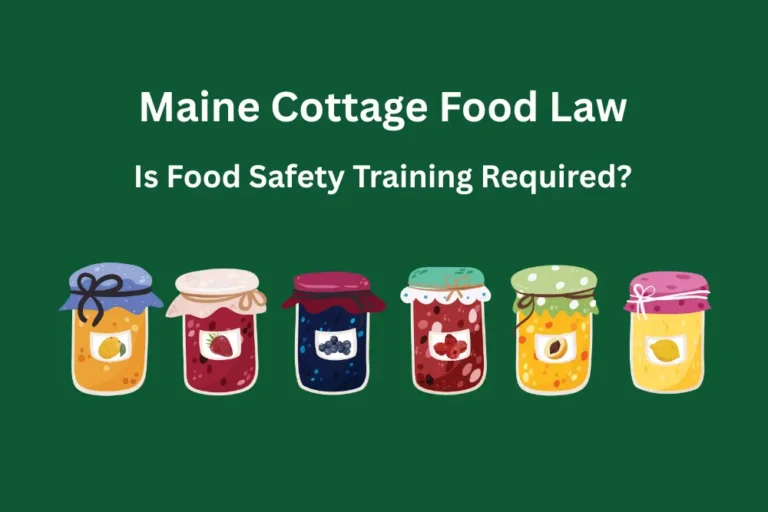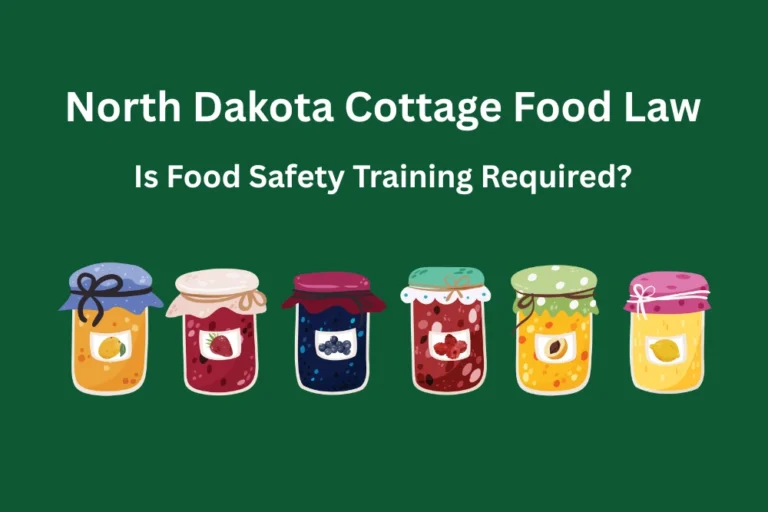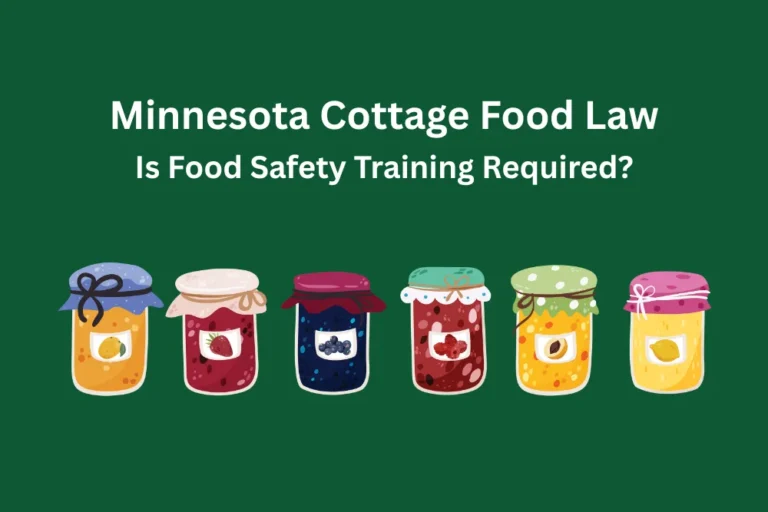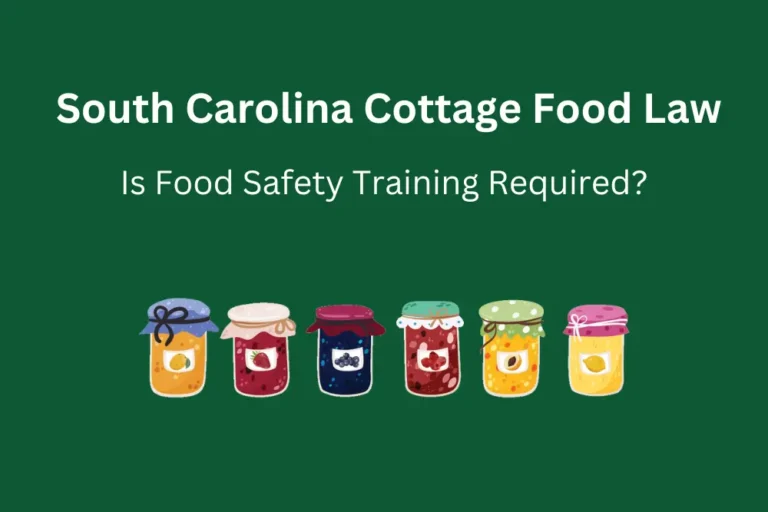Arkansas Cottage Food Law: Do You Need Food Safety Training?
Selling homemade food can be a great way to share your products and earn extra income, but every state has its own rules you need to follow.
Each state sets its own cottage food laws that define what you can make, where and how you can sell it, and whether you need food safety training.
This article explains Arkansas’s cottage food law — called the Food Freedom Act — and whether you need food safety training to sell homemade food.
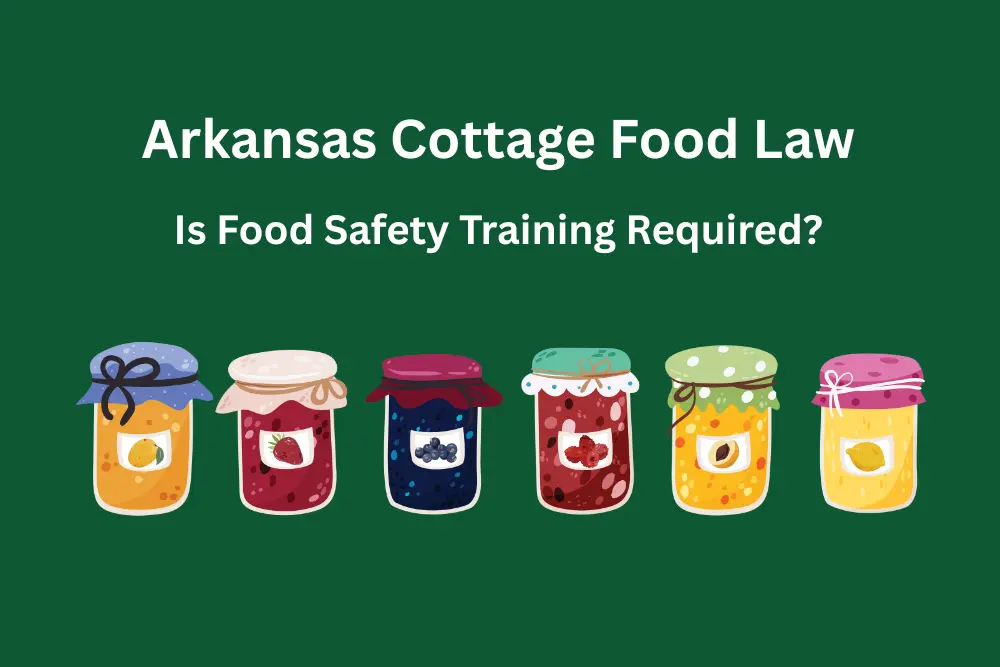
Arkansas cottage food law
Arkansas homemade food production falls under the Arkansas Food Freedom Act. This law allows you to make and sell many types of homemade, non-TCS (non–time/temperature control for safety) foods from your home kitchen without needing any type of license or permit.
Here are examples of allowed foods:
- Baked goods like breads, cookies, cakes, muffins, and brownies
- Jams, jellies, preserves, and fruit butters that are shelf-stable
- Candy, fudge, and caramel treats
- Snack mixes, granola, popcorn, and trail mix
- Dried herbs, spices, seasoning blends, and teas
- Whole, uncut fresh fruits and vegetables
- Vinegars and infused vinegars with a final pH of 4.6 or below
- Pickled or acidified vegetables with a final equilibrium pH of 4.6 or below when made with a state-approved/tested recipe, a process authority, or batch pH testing and proper records
- Maple syrup, sorghum, and honey (with only non-TCS flavorings)
Conversely, you cannot sell foods that require TCS. Examples of TCS foods includes items like dairy products, cheesecakes, meat, poultry, seafood, cut leafy greens, cut tomatoes, cut melons, garlic-in-oil, raw or lightly cooked sprouts, low-acid canned foods (e.g., green beans), and other products that require refrigeration for safety.
These items require permitting and inspection by the Arkansas Department of Health (ADH).
You can sell allowed foods directly to people in person, at a farm stand, at markets, in retail shops or grocery stores, or even online and over the phone within the state. Delivery is also allowed, whether by you, an agent, a third-party vendor, or a third-party carrier. Sales to restaurants for use in their menu items are not allowed because products must come from an approved source.
Summary
Arkansas allows the production and sale of a wide variety of shelf-stable homemade foods. However, you cannot sell TCS foods, such as meat, poultry, seafood, sprouts, and dairy without an ADH permit.
Do you need food safety training to sell homemade food in Arkansas?
Arkansas does not require you to complete food safety training or earn a Arkansas food handler card to sell homemade food.
Still, completing a food safety training course can make a big difference for your business. Customers want to feel confident that the food they buy is safe, and a food handler card shows that you care about their health and your reputation.
Food safety training can also create more selling opportunities. Some markets, event organizers, retail partners, or insurance providers may require or prefer proof of training, even though the law doesn’t.
FoodSafePal’s ANSI-National Accreditation Board (ANAB)-accredited food handler course meets national standards and only takes about 90 minutes to complete. Once you pass, you’ll get immediate access to your food handler card and certificate, plus the option to order a printed version for display at markets or for your records.
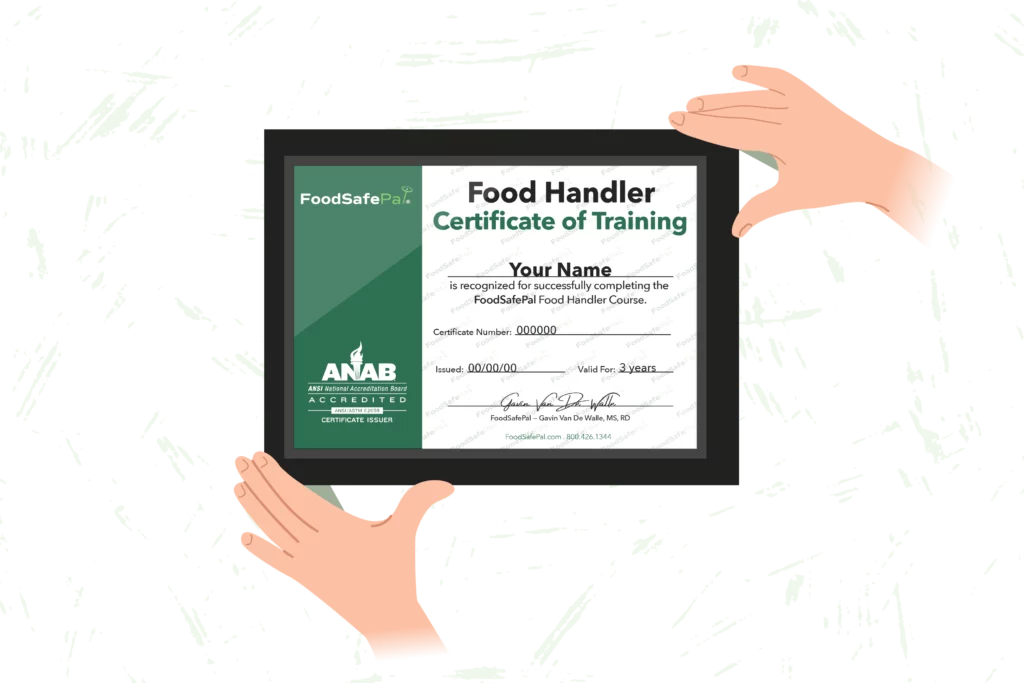
Get Your Arkansas Food Handlers Card
Instant certificate. 100% online in about 90 minutes.
Summary
Food safety training isn’t required in Arkansas, but earning a food handler card can build trust, open more opportunities, and make it easier to insure your business.
Labeling requirements
Arkansas law requires every homemade food item to provide certain information to consumers. This can appear on a label, container, placard, or website, depending on how the product is sold.
You must include:
- The date the product was manufactured, produced, or processed
- The producer’s name, address, and telephone number (or a state-issued identification number from the Arkansas Department of Agriculture in place of address/phone for safety)
- The common or usual name of the food item
- The ingredients in descending order by weight
- The following statement: “This product was produced in a private residence that is exempt from state licensing and inspection. This product may contain allergens.”
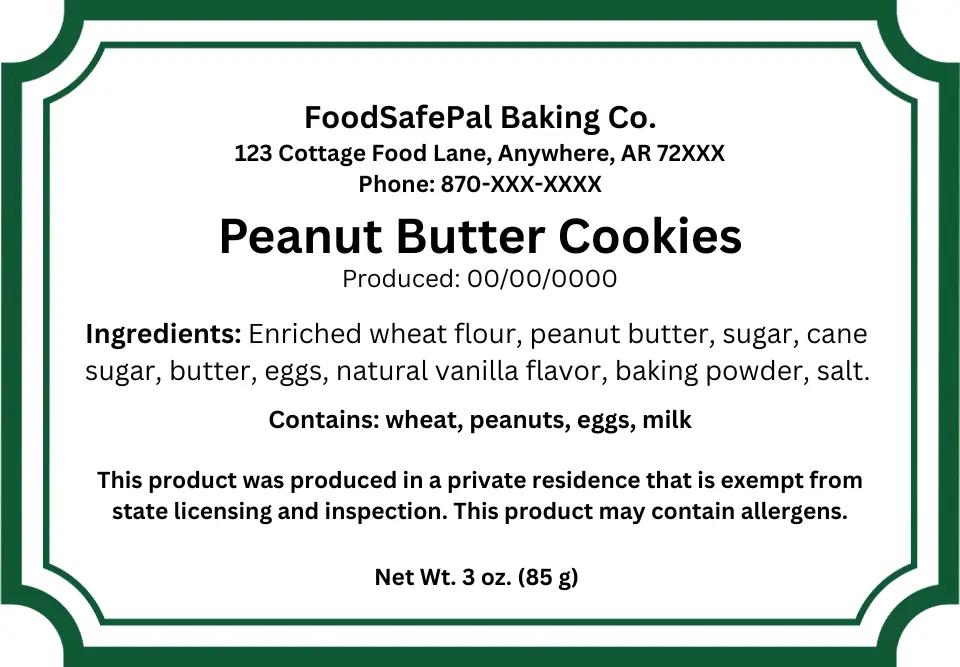
If sold online, this information must be clearly displayed on the webpage, and the physical package must still be labeled. For products sold from bulk containers, provide the full disclosures to the consumer at the time of sale.
Summary
All Arkansas homemade food products must include the production date, producer contact information (or state ID number), product name, ingredient list, and the required allergen statement. These details can appear on a label, placard, or online listing, depending on how you sell.
The bottom line
Arkansas’s Food Freedom Act lets you sell many types of shelf-stable homemade foods directly to people, online, via delivery, and even through third-party retail shops, without licenses, permits, or inspections. Perishable/TCS foods and items like meat, seafood, poultry, dairy, sprouts, and low-acid canned goods are not allowed without ADH permitting.
Food safety training isn’t required, but completing an ANAB-accredited food handler course from FoodSafePal can help your products stand out, build trust with buyers, and support your business growth.
All products must include the required consumer advisory with your contact information (or state ID), ingredients, production date, and allergen disclosure.

Get Your Arkansas Food Handlers Card
Instant certificate. 100% online in about 90 minutes.

